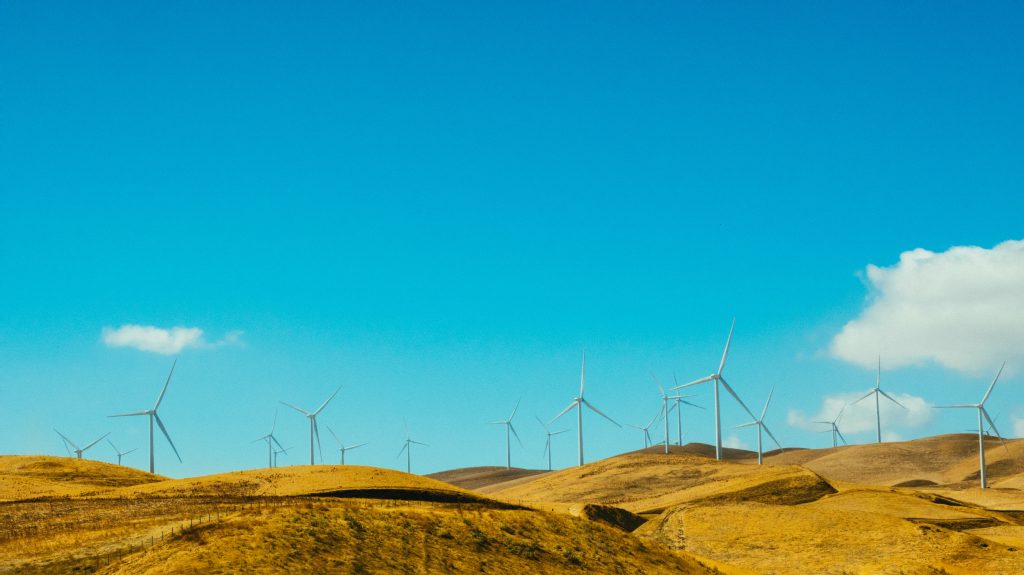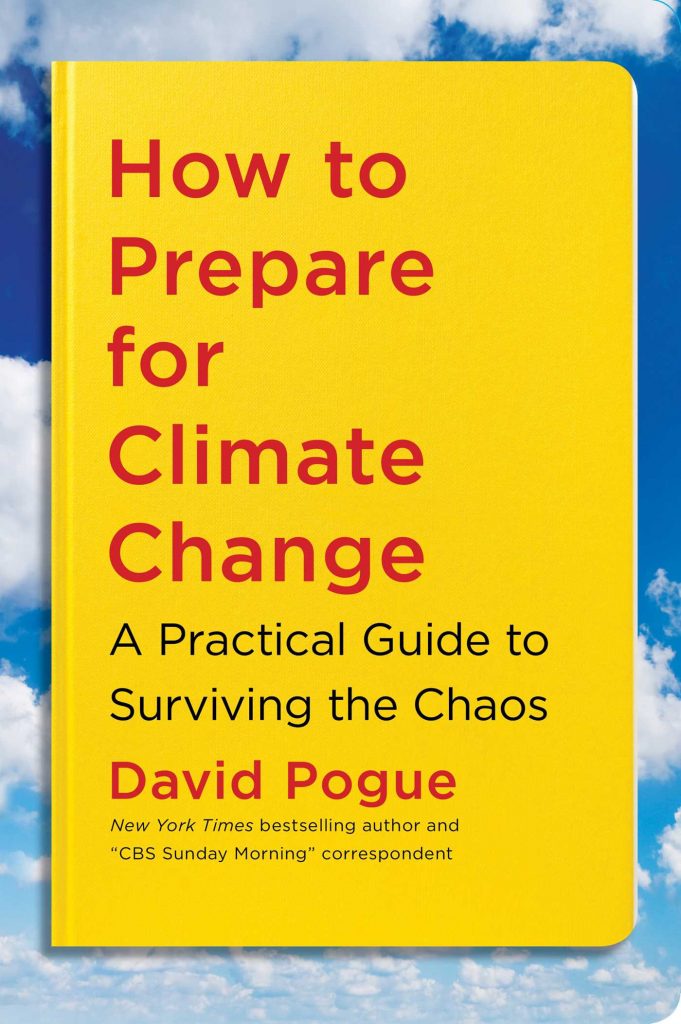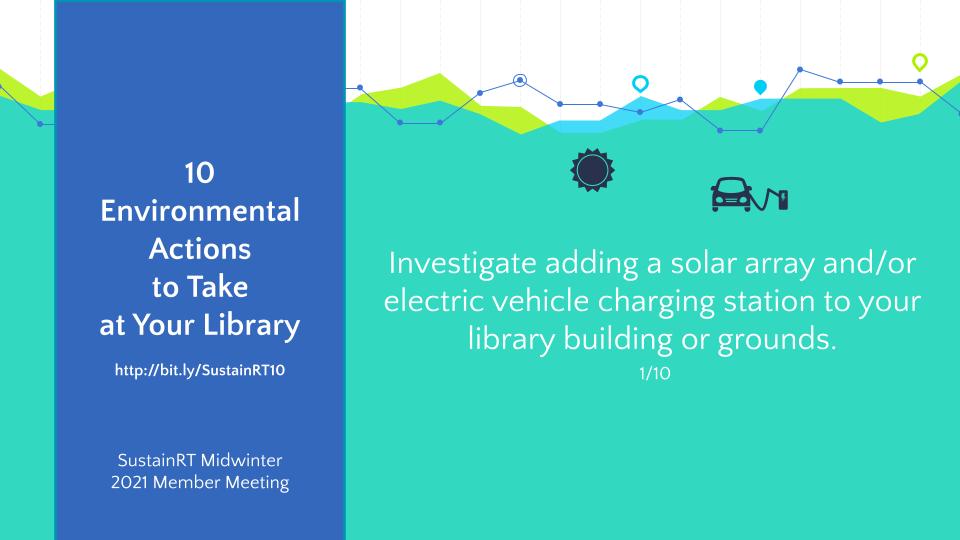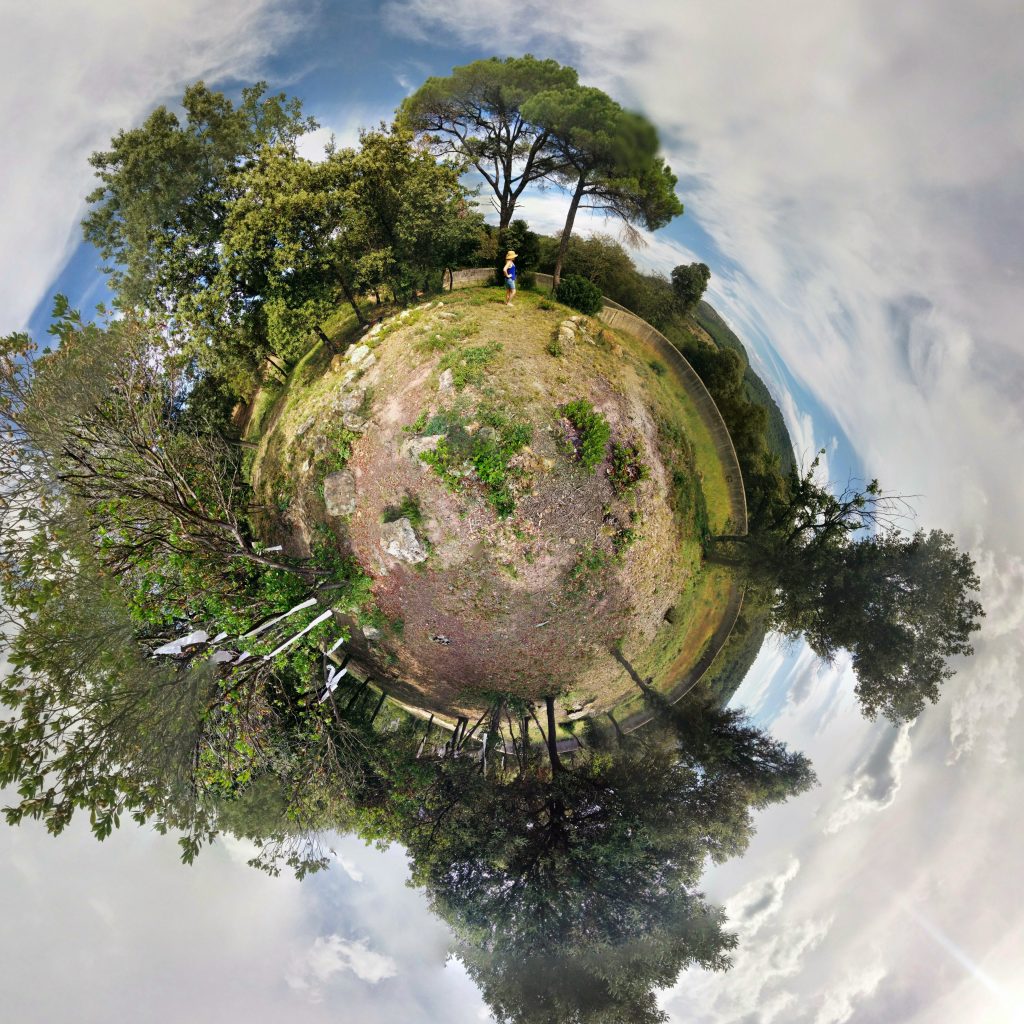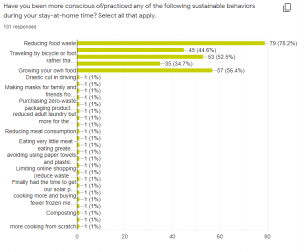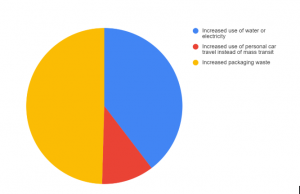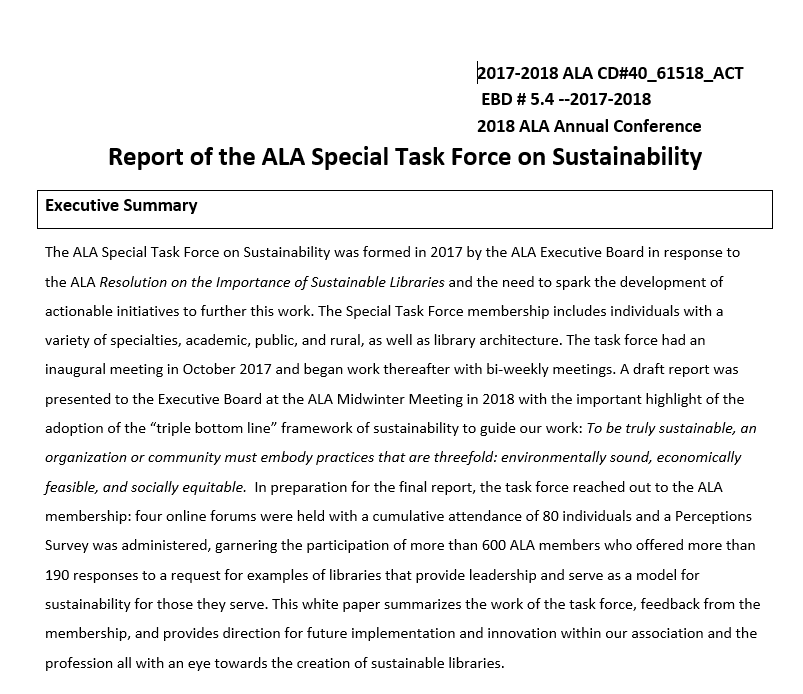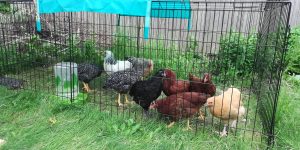
Interview with Queens Public Library Manager Ronglin Wan
By Kacper Jarecki
One of the interesting things about working from home is that during online meetings and video conferencing, you get to peek into people’s homes. It was during one of these meetings that I learned that one of my fellow library managers, Ronglin Wan, raises chickens from home. I thought this was really cool, and also a sustainable way to make eggs.
KJ: How many chickens do you have? Do they have names?
RW: I currently keep six hens in five breeds: 2 Rhode Island Reds, 1 Barred Rock, 1 Buff Orpington, 1 Brahma, 1 Black Australorp. I have not given a name to each of them yet.
KJ: What inspired you to keep chickens at home? How long have you had them?
RW: It was primarily our intention to have chickens as pets and as egg layers. Both my wife and I used to keep chicks in our childhood and loved them immensely. Chickens can be lovely creatures to observe as they forage in the backyard. But our objective is now more on the side of keeping hens for fresh, organic eggs, which provide essential nutrients our body needs.
We bought 3-day-old chicks last April so we have had them for thirteen months now.
KJ: Where do you keep your chickens? Is it hard to care for them?
RW: We keep them in the backyard. When they were small, we let them roam in the entire yard. As they grow older, they become quite “destructive”, meaning they will eat up all the grass. Now we keep them within the back half. It is not too hard to care for them. We feed them with organic chicken feed, non GMO rice and other grains, kitchen scraps, fresh vegetables or grass from the front yard. We spend about one hour on them each day. The work includes feeding and cleaning the coop. They are easy to keep: can be kept in a coop all day, or free range.
KJ: How often do they lay eggs? Do their eggs taste better than the ones at the store?
RW: Currently a hen lays an egg in about 30 hours. In summer when the daylight is longer, each will give us an egg a day. One interesting thing about the hens is that they tend to lay their eggs in one nest, even though I have four nests in the coop. When a laying hen is occupying the nest, another hen, ready to lay as well, waits outside, if she is a patient one, or cackles loudly and repeatedly, if she is a noisy one, or squeezes in as well, if she is a bully.
The eggs do taste better than the ones we buy in stores, as we feed the chickens with organic feed supplemented with fresh vegetables and meat.
KJ: How does having chickens make you feel? Do you enjoy caring for them?
RW: Keeping chickens is fun. Some hens are very friendly; they will follow you around thinking you might toss some goodies to them. The fluffy creatures are often a pleasant sight to watch as they are colorful and lovely.
My wife enjoys keeping the chickens. She cooks the feed even though chickens can eat feed raw. But the hot food makes the hens happy especially in winter.
It is very satisfying to collect eggs in the evening. For me, the eggs are the reward for a day’s work.
KJ: How do you like to prepare your eggs? Do you have any good recipes?
RW: We prepare eggs in several ways, scrambled (fried or baked), poached, boiled, dropped in soup, used in making omelet, quiches, bread, cakes.
My wife also uses eggs to make egg dumplings. She scrambles eggs in a bow, drops a tablespoonful of the egg mixture into a round scoop, heats and swirls it over flames. When the egg mixture nearly hardens over the inner surface of the scoop, she adds minced meat onto the egg sheet, and folds half of it over to envelope the meat. When the two sides sticks together with meat inside, the dumpling is done. She makes many of them and uses them in a soup. They are delicious.
KJ: Thanks, Ron! See you at our next Managers Meeting 😉
